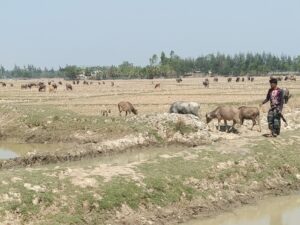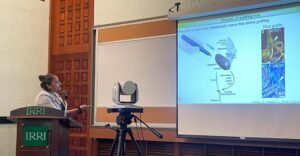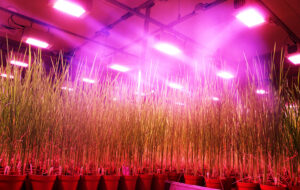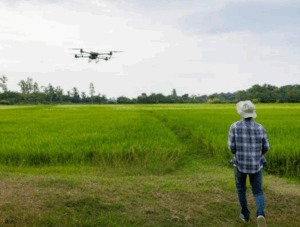by Veronica Mae Escarez
Scientists from the Sokoine University of Agriculture, the University of Copenhagen, the Tanzania Agricultural Research Institute, and the International Rice Research Institute are using satellite imagery and geospatial datasets to establish the frequency and extent of floods in the rice-growing areas of Tanzania’s river basins. The aim is to plot flood occurrences in these regions using Google Earth Engine data to assist farmers in planning their planting calendars to prevent natural disasters from damaging their rice crops.

Scientists from the Sokoine University of Agriculture (SUA), the University of Copenhagen, the Tanzania Agricultural Research Institute (TARI), and the International Rice Research Institute (IRRI) are using satellite imagery and geospatial datasets to establish the frequency and extent of floods in the rice-growing areas of Tanzania’s river basins.
In the new study, Floods stress in lowland rice production: experiences of rice farmers in Kilombero and Lower-Rufiji floodplains, Tanzania, scientists aim to plot flood occurrences in these regions using Google Earth Engine data to assist farmers in planning their planting calendars to prevent natural disasters from damaging their rice crops
In early December 2023, several districts in Tanzania experienced extreme flooding and massive landslides resulting in casualties and significant damages, according to Al Jazeera News Between 2017 and 2022, researchers established that floods engulfed 55% and 5.5% of rice-growing areas in the Lower-Rufiji Basin and Kilombero Basin, respectively.
Further, the study detailed that floods have threatened the food, health, and livelihood security of farmers in Tanzania’s floodplains. Aside from the significant crop losses, extreme floods have made it difficult for farmers in the basin areas to manage their lands, forcing them to rent, sell, or abandon their crops and farms.
Farmers from Ikwiriri have also practiced recession farming to cope with floods. They cultivate plants using recent floods’ residual moisture to have a steady food supply despite the disasters.
“Flood maps should be used to guide farmers which areas (villages) could plant rice varieties that tolerate growing under-water and, later, improve after flooding,” said Mr. Paulo Sulle a researcher from the Department of Soil and Geological Sciences, College of Agriculture at SUA.
Other environmental stresses, such as droughts, have also restricted farmers from using short-maturing, high-yielding rice varieties. Tanzanian farmers have adjusted their planting calendar and used early or late-maturing as well as flood-tolerant rice varieties as part of their adaptation practices.
The study also detailed that farmers from Mgeta can access reliable weather forecasts through TARI but its use to inform farmers’ decisions is minimal.
“These maps are important for planning and implementation of strategies for early warning and flood danger readiness,” said Dr. Joel Meliyo from TARI.
This shows the importance of building the farmers’ knowledge of weather forecasts to help them make informed decisions as they manage their crop schedule to reduce the impacts of natural catastrophes on their crops.
Read the study
Michael PS, Mwakyusa L, Sanga HG, Shitindi MJ, Kwa Lema DR, Herzog M, Meliyo JL, & Massawe BH (2023). Floods stress in lowland rice production: Experiences of rice farmers in Kilombero and Lower-Rufiji floodplains, Tanzania. Frontiers in Sustainable Food Systems, 7, 1206754.
You may also explore other studies on flood- and salinity-tolerant African rice at climatesmart-african rice.irri.org.
For further information, please contact:
Dr. Mawazo Shitindi- shitindi@sua.ac.tz; +25568966866
Mr. Paulo Sulle Michael –budasulle@yahoo.com +255783067086
Dr. Joel Meliyo – joel.meliyo@tari.go.tz +255756403984; +255627937609






